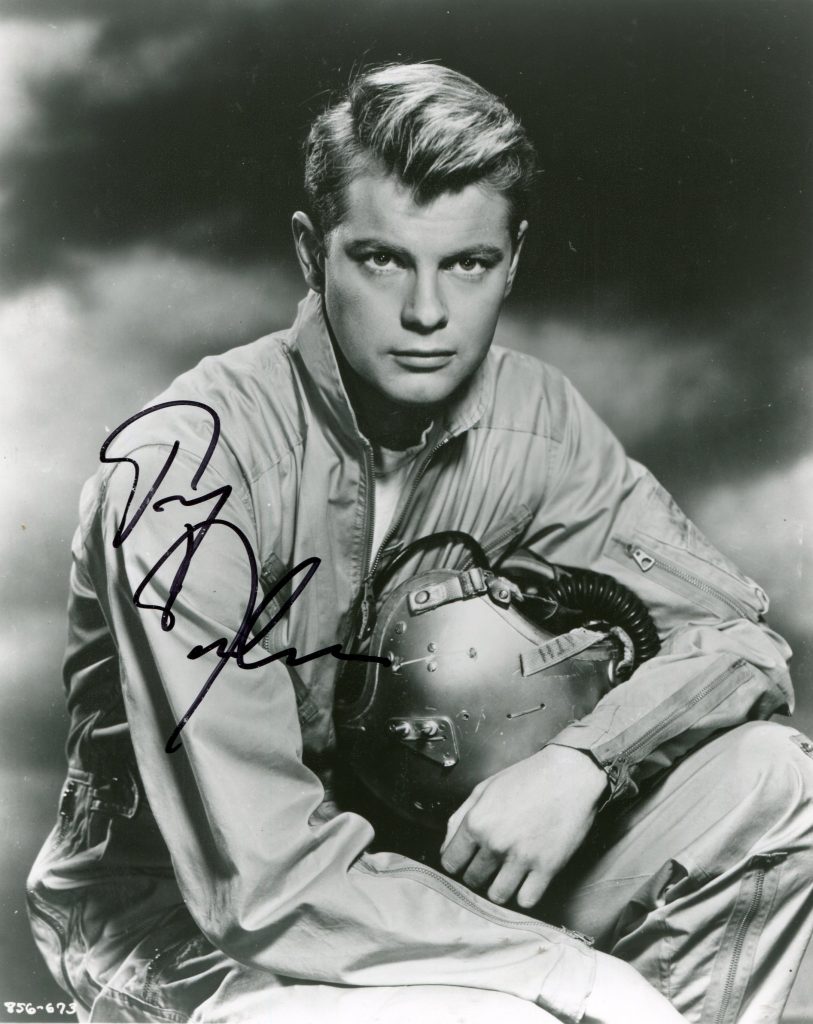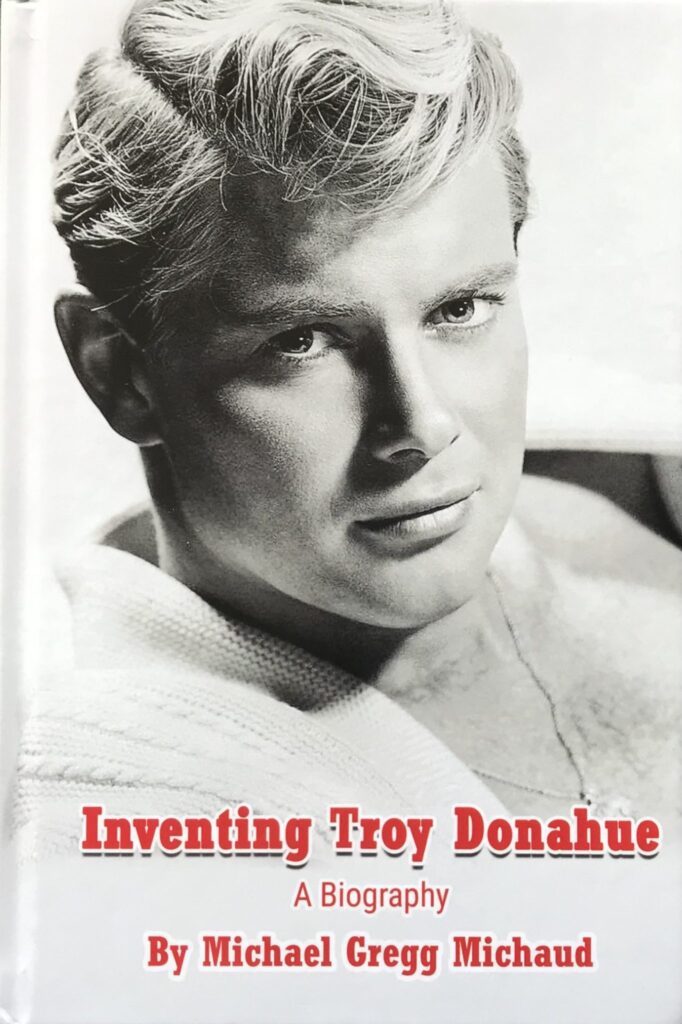

TROY DONAHUE OBITUARY IN “THE GUARDIAN” IN 2001.
‘If Troy Donahue could become a movie star, then I could become a movie star,” sings a character in the Broadway musical, A Chorus Line. It is an affectionate put-down of the hunky, blond, blue-eyed teen idol, wildly popular during the era of generation-gap movies in the late 1950s and early 60s.
Donahue, who has died of a heart attack aged 65, shot to star status in A Summer Place (1959), in which he and Sandra Dee made love to the strains of the ubiquitous title-song on a Maine beach. For a short time, the film made him the top fan-mail recipient – mostly from adolescent girls – at Warner Bros studios. “They’d ask me to light a cigarette, and when I did, they screamed and fell down,” he recalled.
However, by the mid-1960s, he was all washed up, so that when producer Robert Evans was offered Marlon Brando for The Godfather (1972), he declared, “Sonny Tufts, Troy Donahue, Tab Hunter, Fabian – put them all together, Brando is colder.”
Troy Donahue was born in New York as Merle Johnson Jr. His father was head of the motion picture division of General Motors; his mother was an aspiring actress. He studied journalism at Columbia University, but acting took up most of his time. After appearing in local rep, his beachboy good looks got him a Hollywood contract and a new name, coined by Henry Willson, the agent who came up with the pseudonyms “Rock Hudson” and “Tab Hunter”.
“It was part of me 10 minutes after I got the name,” Donahue said years later. “It feels so natural. I jump when people call me by my old name. Even my mother and sister call me Troy now.” As an in-joke, he played a character called Merle Johnson in The Godfather Part II (1974).
As part of Universal’s stable of young talent, Donahue made his screen debut in Man Afraid (1957), as a teenage burglar who gets killed in the first few minutes of the movie. The studio then put him into five pictures in 1958, among them This Happy Feeling, in which he spent most of his small part willing a wounded seagull to fly, and Monster On The Campus, which saw him as a student terrified by a giant fish and by a professor turned neanderthal. In Douglas Sirk’s magnificent melodrama, Imitation Of Life (1959), he had the brief but significant role as Susan Kohner’s boyfriend.
But it was Warner Bros who saw Troy Donahue’s potential and cast him in four soap operas directed by Delmer Daves, beginning with A Summer Place. He then got the title role in Parrish (1961), playing a young Connecticut tobacco grower having trouble with three seductive girls (and with his lines).
There followed Susan Slade (1961), in which he was a shy horse-doctor who married Connie Stevens, despite the fact that she was pregnant by another man; and Rome Adventure (1962), in which Suzanne Pleshette opts for the American art student Troy over the Latin charms of Rossano Brazzi.
Troy Donahue and Pleshette married in 1964, though the union only lasted a year. None the less, the couple co-starred in Raoul Walsh’s western, A Distant Trumpet (1964), with Troy as an expressionless lieutenant defending a fort
Previously, he had appeared in two television series, Surfside 6 and Hawaiian Eye. His fleeting time in the limelight came to an end with My Blood Runs Cold (1965), in which he risked his good-guy image as an insane killer who believes he has been reincarnated and is in love with a girl from a past life. It ended his Warner Bros contract.
After a few years away from the screen, Donahue returned, with his clean-cut looks dirtied up, as a Charles Manson-like figure in Sweet Saviour (1971), a nasty exploitation movie. A scene of him knifing people during an orgy was an indication of how much things had changed in the film business.
After his brief moment as a weak Wasp intruder into the Mafia family of The Godfather II, he became addicted to drugs and alcohol, even spending a summer homeless in Central Park, New York. However, by the early 1980s he had sobered up. “I realised that I was going to die,” he explained. “Worse than that, I [thought I] might live the way I was I was living for the rest of my life
In 1989, John Waters gave the almost unrecognisable Donahue a cameo role in Cry-Baby (1989), thus paying tribute to one of the great teen idols of the 1950s, the era in which the film was set. In his latter years, he eked out a living giving acting classes to passengers on the Holland-America cruise line.
Donahue, who was married four times, and was living with the Chinese-born mezzo-soprano Zheng Cao when he died, is survived by a daughter and son


